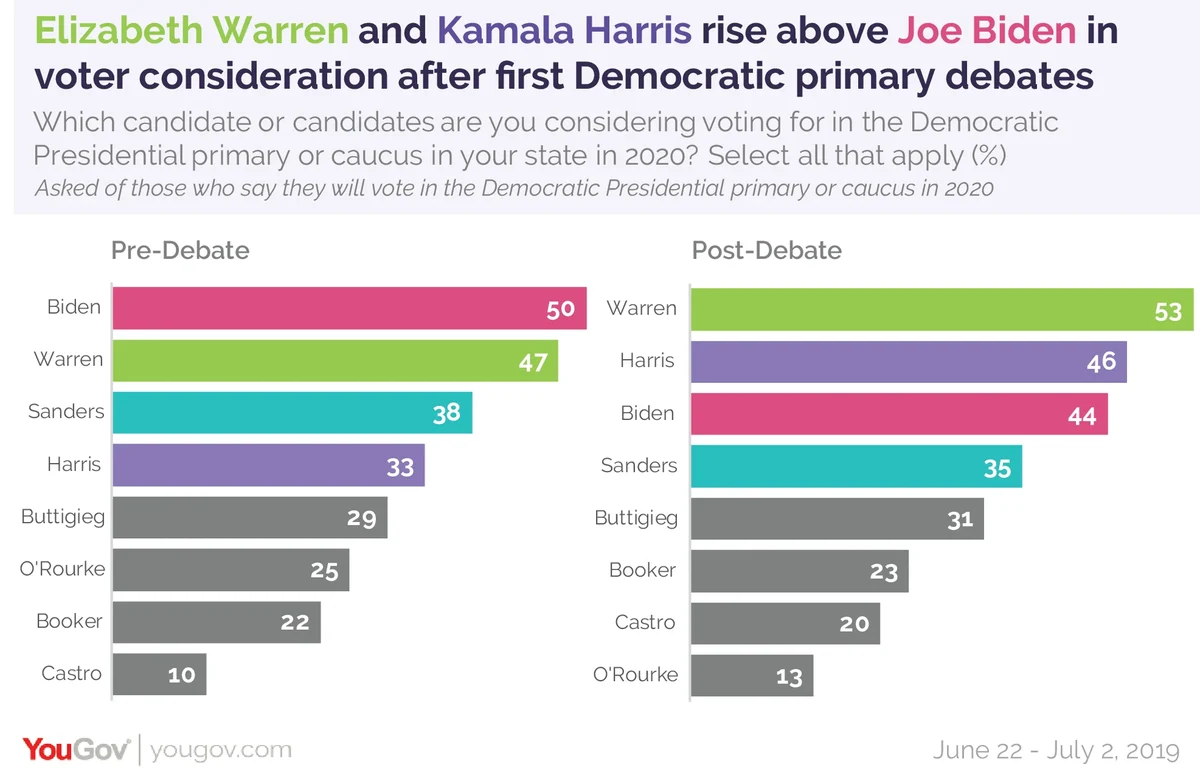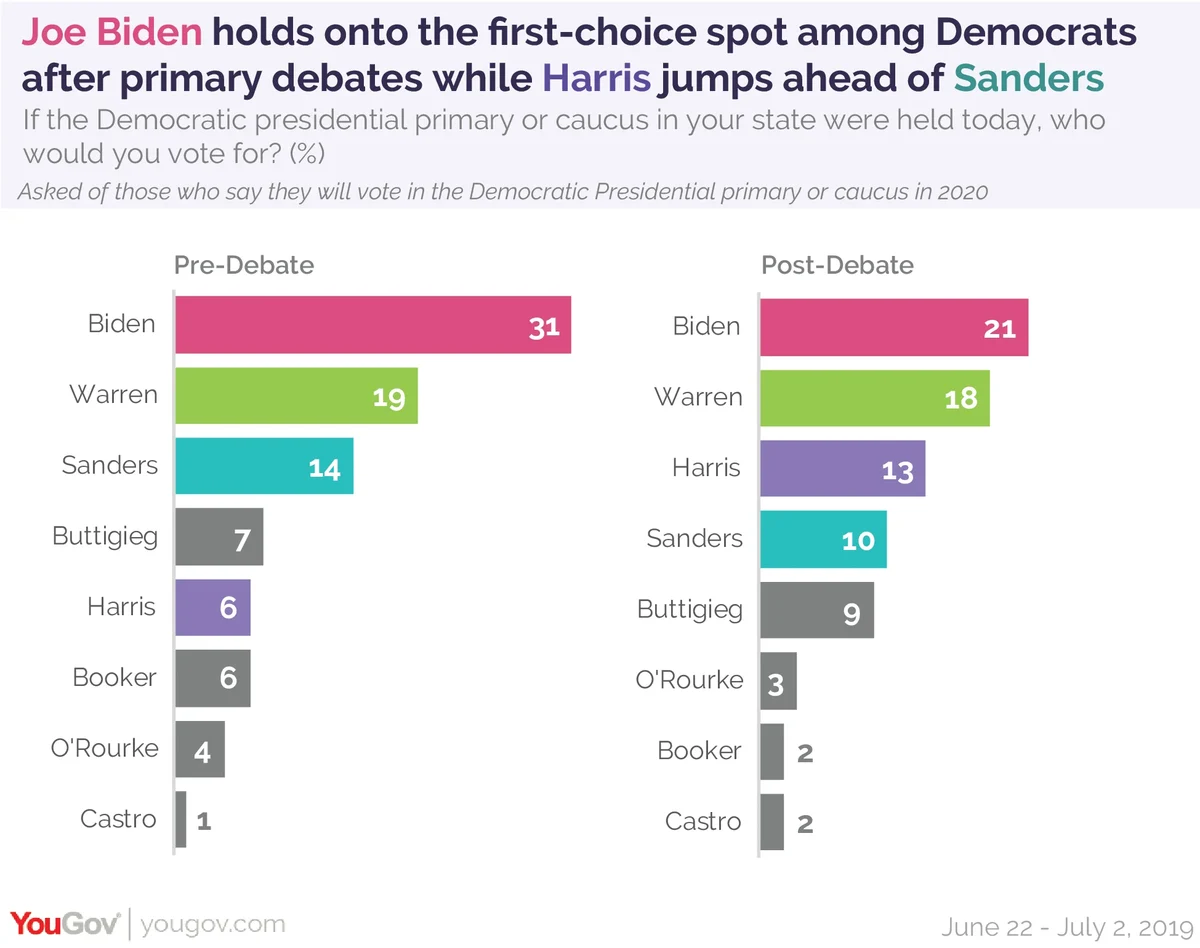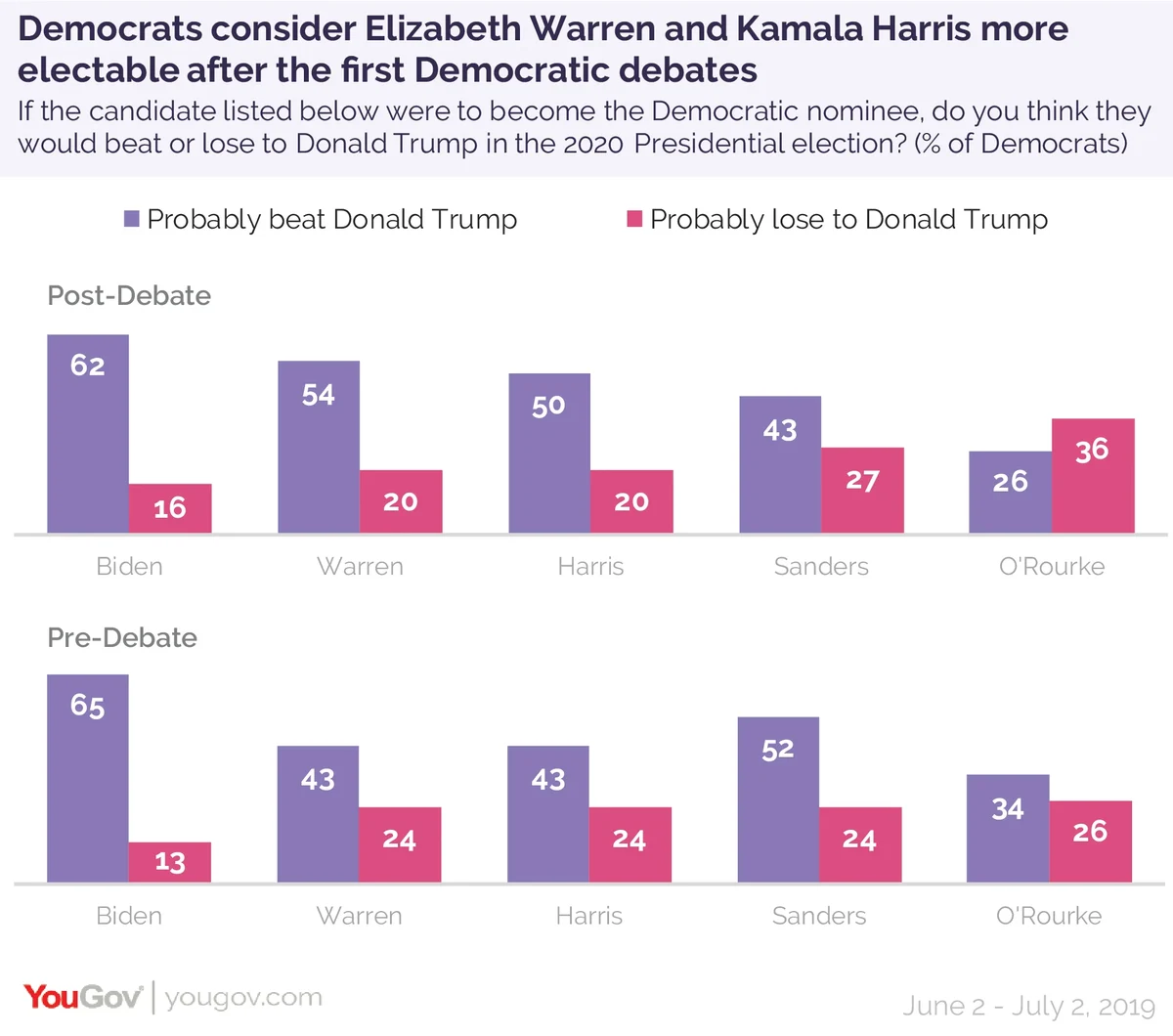Who won the first round of Democratic debates?
A pair of female presidential candidates scored clear wins, but most (but not all) candidates who participated benefited, too. They became better-known and better-liked by Democratic primary voters. The debates also may have opened voters up to considering more candidates. In the latest Economist/YouGov Poll, only 22% of Democratic primary voters say they are considering supporting just one of the two dozen potential candidates, down from 29% last week, a drop of seven points.
The major gains in support come among those judged to have performed best in the debates. Nearly half (48%) of Democrats who saw all, part or video clips of the first debate said Massachusetts Elizabeth Warren did the best job – or won – that debate.
Former Housing and Urban Development Secretary Julian Castro, and New Jersey Senator Cory Booker finished a distant second and third behind Warren. California Senator Kamala Harris dominated among Democratic viewers of the second debate: 48% said she did the best job in that debate. Far fewer named either former Vice President Joe Biden or Vermont Senator Bernie Sanders.
But the biggest changes came in the share of Democratic primary voters now considering each of the candidates. More are now considering Warren than are considering Biden; more are considering Harris than are considering Sanders (and she and Biden are being considered by about the same percentages of primary voters. Nearly as many are considering South Bend Mayor Pete Buttigieg as are now considering Sanders.
For Biden, this is a drop of six points from last week. Warren gained six percentage points and Harris 13 points. The percentage considering Castro doubled. Biden’s drop is not the largest: the share of Democratic primary voters considering former Texas Congressman Beto O’Rourke was cut nearly in half.

Biden remains ahead when Democratic voters are asked to name their first choice (21%). But Warren is close behind with 18% naming her as their top pick. Biden is also the clear leader among those who say they are considering only one candidate. Nearly one in three in that group (22% of all Democratic primary voters) choose Biden. Warren and Sanders follow. All the other major contenders are in single digits among voters with only one choice.

A few candidates saw their favorable ratings among Democrats improve dramatically. Castro’s favorable rating rose 13 points, Hawaii Representative Tulsi Gabbard’s jumped 12 points, Kamala Harris’s rose nine points. Washington Governor Jay Inslee saw a rise in favorability of eight points.
One candidate, Marianne Williamson came out of the debate with a change in the wrong direction in Democratic perceptions, though half of Democrats still have formed no opinion of her. Last week, 23% of Democrats were favorable toward Williamson, while 13% were unfavorable. Now 20% are favorable, 31% are not.
One in four Democratic voters say they would be “disappointed” if Biden became the nominee; the same proportion would be disappointed with a Sanders nomination. However, even more, 32%, would be disappointed if Williamson became the party’s nominee. Far fewer, one in 10, say they would be disappointed with Warren, Harris, Booker, Buttigieg or Castro.
With 62% of Democratic voters saying it is more important for a nominee to be able to defeat Donald Trump than to have policy positions the voter agrees with personally, electability is a threshold candidates must cross. The debates helped some Democrats appear potentially electable. Biden remains the candidate with the largest share of Democrats that say he would defeat Donald Trump, but half of Democrats now say that Warren and Harris would, too.

Less than half of Democrats now believe Sanders would defeat the incumbent, a drop of nine points since early June. Today more Democrats say O’Rourke would lose; a month ago more thought he would defeat the president.
Democrats are ready to hear more. Three in four Democrats say that how the candidates perform in the debates will be important in determining their vote (though just 24% describe them as very important). And 74% of Democrats say they are looking forward to more debates in the future.
See the full toplines and tables results from this week’s Economist/YouGov Poll.
Image: Getty















